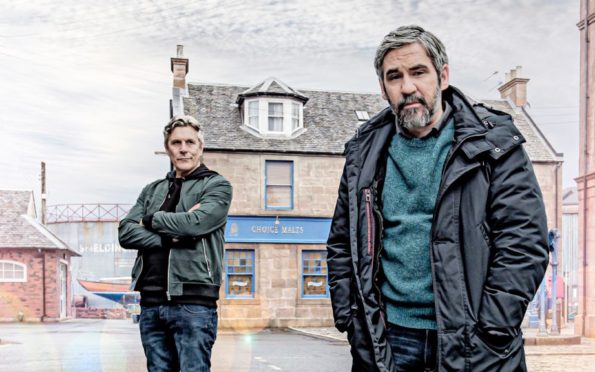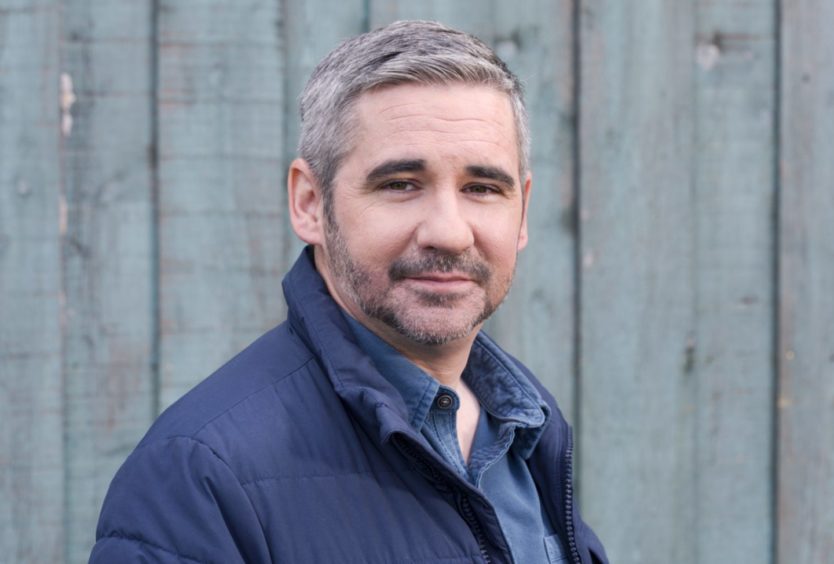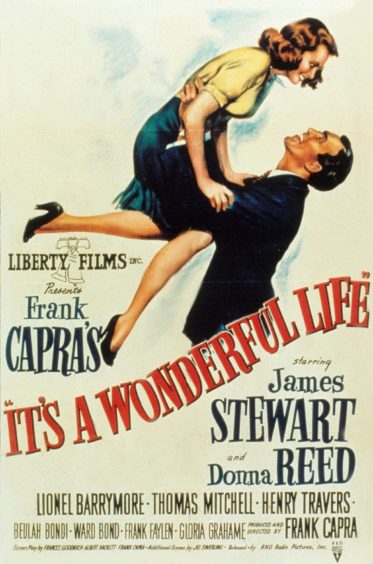
When River City hits the screen tomorrow night, actor Iain Robertson will breathe a sigh of relief.
For 10 long months now, his character in the BBC Scotland soap, Stevie O’Hara, has seen his mental health decline to the point of an attempted suicide.
But in a dramatic twist this week, as he fights for his life in hospital, a special episode focusing on the effect of the pandemic sees him open up and edge himself back from the brink of despair.
“This is a great episode. It’s emotional stuff, but for me it’s been a relief to get to and for everything to come to a head.
“Stevie has been mentally on the decline since last August. It’s not the easiest, having an alter ego day in and day out who is having a tough time.
“In all the parts I have played I have never got under someone’s skin to the extent that I have with Stevie. I know him so well.
“When I first read the production draft of the script, I was in tears.
“Stevie has lost his restaurant, family members through Covid, his livelihood. Really everything that can go wrong in his life has gone wrong in the last year – which is the story for many men during the pandemic, not just in Scotland, but around the world.
“I’m really proud of it. It’s emotional stuff. Let’s just say a few tears were shed. I just hope it gives people food for thought.
“If it helps just one person out there struggling with this issue, then it will have been worth all the effort.”
The episode – inspired by 1946 Christmas classic It’s A Wonderful Life when James Stewart is pulled back from the edge by his guardian angel – is part of the BBC’s Headroom campaign, which recognises the impact the pandemic is having on everyone’s mental health.
Headroom offers an online toolkit for the mind to help people look after themselves with practical, everyday tips, inspiring personal stories, activities and music mixes to boost your mood, escape and relax.
Tomorrow’s hour-long episode largely features Stevie as well as his guardian angel Gabriel, played by Robertson’s long-term pal Garry Sweeney.
“Garry and I were filming it every day in the pouring rain for nearly two weeks solid. It was heavy going,” he said.
“In fact, I believe it has broken all the records as there haven’t been as many scenes with just one actor in a single episode of River City.
“But working with Garry was great. I’ve known him since I was a bairn. In fact, Garry and I first worked together when I was 13 on Small Faces. There is a history there that we can tap into that makes it effortless.
“I suppose the only difference is that we used to be boys, now we’re grey-haired old guys!”
Robertson has been on the soap for four years and says it has been one of the best jobs of his 27-year acting career.
“It’s a great team to be part of,” he said. “I love it.
“In fact, it’s hard to believe I was originally only meant to be on the show for three months. It has passed in the blink of an eye.
“I always thought it would be horrible to be in a soap, like going into the office every day. But I have experienced the joy of telling a story, and particularly this one about Stevie which has lasted for a long time.”
Robertson, who turns 40 on Thursday, added: “I feel incredibly lucky and privileged. Since last summer I’ve been able to go to work and I can’t work from home. I still get to come into the building and socialise with 30 people every day.
“My girlfriend has been working from home from the start and it just makes me realise some days or weeks I am the only person she has seen, whereas I have been able to see my pals at work. That has been really helpful for me. I have been trying to get out and see people as and when we are allowed, as I really feel that helps.”
Robertson has kept his own mental health in check with hillwalking and has just finished filming for a second series of Iain Robertson Rambles for BBC Scotland. “I am not long back from doing the Speyside Way which was amazing, especially as it was at the tail end of lockdown and I had been cooped up for so long. On the first day of filming, the producer and I just stood at the Parallel Roads of Glen Roy and took a moment to appreciate it.
“It’s amazing how coronavirus has changed things.
“I think we’ve realised living through a pandemic that what was weird is now normal, and what was normal now feels weird.
“We have all been living through this pandemic when, even if you think you are OK, there is a low level anxiety. We are all in the same storm, but some people’s boats are fancier than others.
“I think when we did the filming we realised for a lot of people, this is very real. There was so much emotional baggage around some of the scenes.
“Everyone has, in one way or another, been impacted by mental health issues.
“It’s important to encourage people to talk. We need to tackle that stigma and shame of not being able to say to people close to you that you’re struggling and need help.
“I have been very lucky as I’m a bit of a motormouth and I have always found it easy to convey my feelings.
“But that isn’t true for everyone. I directed a short film called The Bridge a few years ago that tackled the issue and the stigma of suicide, so I’ve been immersed in it for a while.
“I wanted to make it seven years before I did. At that point, Scotland had the highest suicide rate in Europe.
“It is still in use somewhere. In fact, I think it has been licensed by Glasgow City Council who are using it as a teaching resource, which is great that something good has come of it.”
The special episode of River City is coming in a busy week for Robertson, along with his Covid vaccination being due and his 40th birthday.
“There’s certainly a lot to look forward to,” he said. “I’m just going to go up a hill or something.
“I’m not one for a big celebration. And my two best friends turned 40 during lockdown so it would be inconsiderate to celebrate too much. We are talking about just joining them all up and having a big 120th later in the year. I remember spending my birthday on my own last year and thinking, ‘Oh well, at least it will be better next year’.
“It probably won’t be much better but that’s what I get for being so hopeful!”
Charities: Lockdown’s been hard on mental health. It’s good to talk
Sadly, suicide in Scotland has been rising in recent years.
The latest figures show in 2019, 833 people in the country took their own lives – that’s two people every day. This was an increase on the previous year. 75% of the people who died by suicide were men. The Scottish Association for Mental Health (SAMH) says men sometimes aren’t comfortable reaching out for help, or think it’s a burden for their friends if they talk openly about life’s challenges.
Research by the charity has shown that the coronavirus pandemic has hit people with mental health problems hard. A survey showed over half (56%) felt their mental health had worsened recently, compared with the start of the pandemic.
SAMH said research shows responsible coverage in the media helps break down stigma around talking about suicide.
Rachel Cackett, Executive Director for Samaritans Scotland, said: “Suicide is clearly a sensitive topic. If handled responsibly drama storylines can create opportunities to help broaden people’s understanding and start important conversations. Talking can help to see different perspectives on our situation and to see a way through things.
“If you’re worried about someone you know it’s alright to ask if they’re ok. For some it can be a huge relief to know that someone’s spotted they may be going through a difficult time and they’re there for them if they want to talk.
“We would encourage anyone who has been touched by Stevie O’Hara’s story to speak to someone they trust or get in touch.”
River City is on BBC Scotland on Monday at 10pm and BBC1 on Wednesday at 7pm
If you need to talk, call Samaritans on 116 123 or email jo@samaritans.org; Visit Scottish Association for Mental Health at www.samh.org.uk or the BBC’s mental health toolkit at www.bbc.co.uk/headroom

Enjoy the convenience of having The Sunday Post delivered as a digital ePaper straight to your smartphone, tablet or computer.
Subscribe for only £5.49 a month and enjoy all the benefits of the printed paper as a digital replica.
Subscribe © Robert Pereira Hind / BBC Studios Scotland
© Robert Pereira Hind / BBC Studios Scotland © Moviestore/Shutterstock
© Moviestore/Shutterstock